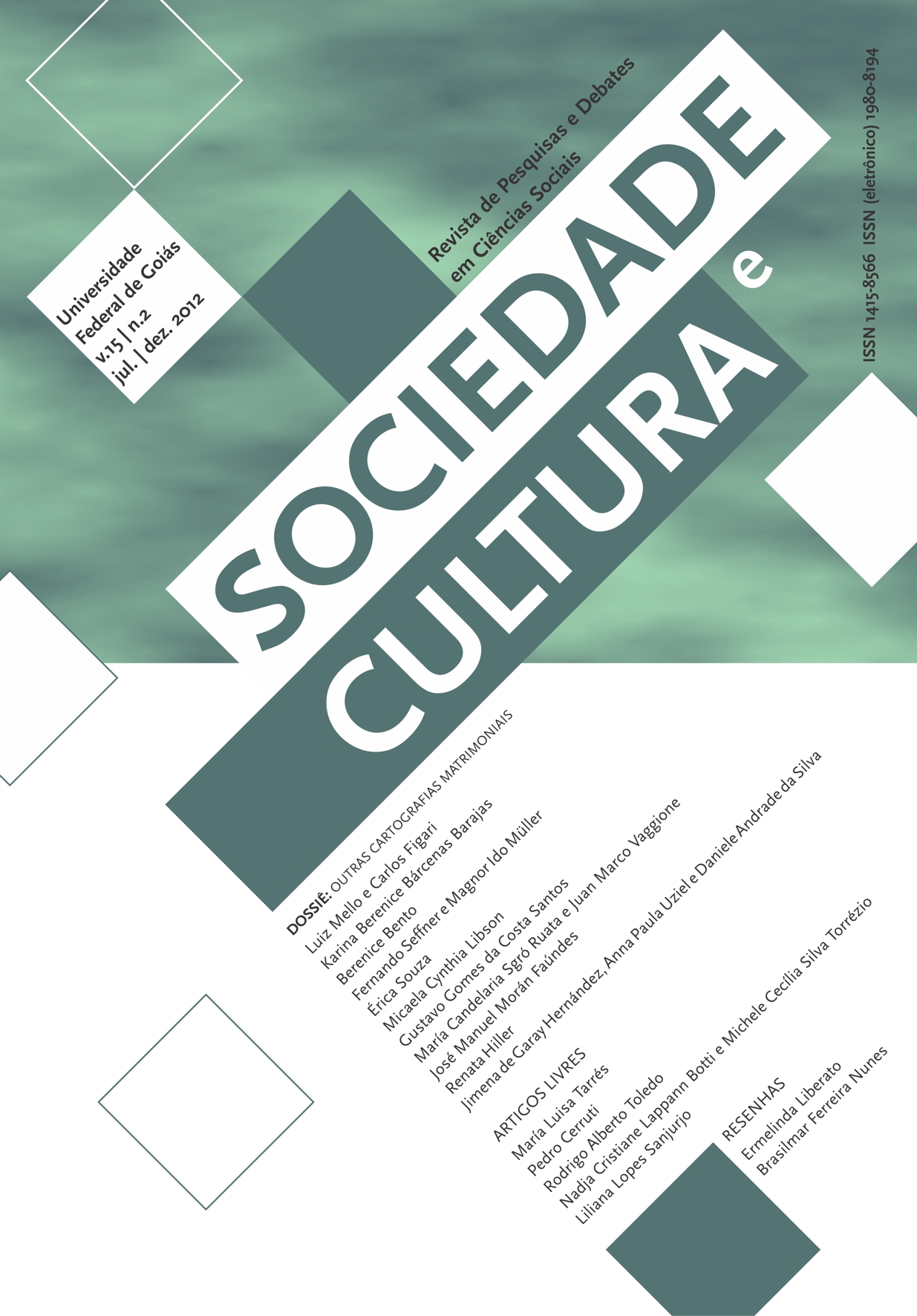Sangue, identidade e verdade histórica: crianças desaparecidas e memórias sobre o passado ditatorial na Argentina
DOI:
https://doi.org/10.5216/sec.v15i2.22410Keywords:
Parentesco, identidades, memória, política, NaçãoAbstract
Neste artigo trato da apropriação ilegal de crianças durante a última ditadura militar argentina (1976-1983). Procuro compreender como os integrantes das organizações de familiares de desaparecidos, ancoradas no parentesco de seus membros com as vítimas da repressão, reconfiguram suas identidades e legitimam suas estratégias políticas nas disputas pela consolidação de uma memória pública sobre o passado ditatorial recente. Explorando o tema da apropriação de crianças a partir da noção de evento crítico (DAS, 1995), analiso algumas polêmicas nacionais que envolvem o processo de restituição da identidade dos netos procurados pelas Abuelas de Plaza de Mayo. Tomo como objeto de análise os debates acerca da aprovação da Lei de ADN para a resolução dos casos dos jovens apropriados que se recusam a submeter-se de forma voluntária ao exame de DNA. O intuito é explorar como noções sobre parentesco, sangue, identidade e verdade histórica atravessam as disputas pelas memórias.Downloads
Download data is not yet available.
Downloads
Published
2013-02-05
How to Cite
SANJURJO, Liliana Lopes. Sangue, identidade e verdade histórica: crianças desaparecidas e memórias sobre o passado ditatorial na Argentina. Sociedade e Cultura, Goiânia, v. 15, n. 2, p. DOI: 10.5216/sec.v15i2.22410, 2013. DOI: 10.5216/sec.v15i2.22410. Disponível em: https://revistas.ufg.br/fcs/article/view/22410. Acesso em: 2 mar. 2026.
Issue
Section
Free Articles
License
Authors who publish in this journal agree to the following terms:
- Authors retain the copyright and grant the journal the right of first publication, the work being simultaneously licensed under the Creative Commons Attribution License, which allows the sharing of the work with acknowledgment of authorship and of the initial publication in this journal;
- Authors are authorized to enter into additional contracts separately, for non-exclusive distribution of the version of the work published in this journal (eg, publishing in an institutional repository or as a book chapter), with acknowledgment of authorship and of the initial publication in this journal;
- Authors are allowed and encouraged to post and distribute their work online (eg, in institutional repositories or on their personal page) at any point before or during the editorial process, as this can bring productive change as well as increases the impact and the citation of the published work (see O Efeito do Acesso Livre).



